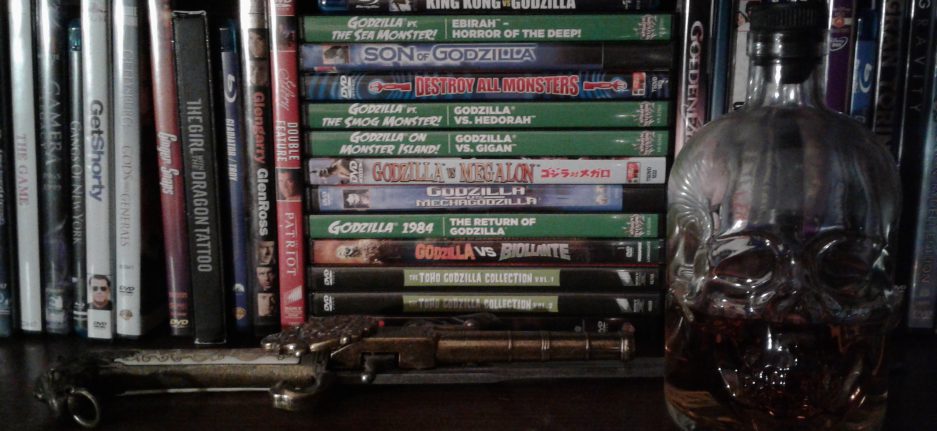Last year, we were graced with a pair of stylistic, female-led action fests. One, Atomic Blonde, was set in 1980s Germany and dripped with Cold War flavor; the other, The Villainess, was a high-octane Korean actioner. The two films have a decent amount in common, including dangerous female leads that kicked a whole helluva lotta ass throughout their respective plots. Most glaringly, though, both were incredibly stylistic, able to visually stand out amongst their peers. I never got a chance to write about them, but I wanted to do a side-by-side comparison, and had I done so, I would have noted that both were alright, but their visual styles needlessly overpowered their narratives, to the point that I wondered why they even bothered. Sure, neither plot is anything new or unique, but they weren’t bad enough to necessitate a drowning in stylism.
Terminal, on the other hand … well, Terminal is different.

Right from the get-go, it’s understood that Terminal is not interested in winning a Best Original Screenplay Oscar or anything. We’re “treated” to an overproduced mess of an intro, complete with the first of a smattering of Alice in Wonderland references (don’t worry, they don’t amount to much), and then we’re sideswiped by some unnecessary extreme closeups and vivid-yet-teal-tinted colors. All of the words the characters speak are obviously trying incredibly hard to sound cool and stylish, but, as we all remember from our high school days, those who try that hard inevitably wind up coming across as massively uncool; funny how things like that don’t really change much. The rest of the film follows suit, buffeting the eyes with meaningless fish-eye lenses, wild angles, overwrought transitions attempting vainly to emulate guys like Edgar Wright, fast-paced editing, and a still-in-vogue-for-unknown-reasons abuse of neon accents.
Much of the blame for this sensory assault comes straight from writer/director Vaughn Stein, who’s helming his first feature here, having worked as a second-unit director for such films as the Beauty and the Beast remake and The Brothers Grimsby. His camera tries to emulate Guy Ritchie’s, but winds up looking like the pale imitation it is. His script is even worse, laden with posturing garbage that holds no real style, wit, or substance. He’s not alone in blame, though, as the editing of Johannes Bock and Alex Marquez displays just as much vainglorious effort, and DP Christopher Ross’s cinematography avoids normal colors, favoring swathes of mildly saturated hues one moment and meant-to-be-moody desats the next, with no apparent purpose in mind beyond ensuring a constant blue tinge throughout. Gotta look edgy, right, kids? It’s a brutal statement of style, without a hint of substance or demonstrable skill.
The acting doesn’t provide any succor, either. While Simon Pegg brings some experiential nuance to his role, he’s alone in his effort: Margot Robbie, the primary marketing focus, it has seemed, looks to be returning to her manic Harley Quinn role, though with a British accent and less of an outward proclivity for bloodshed, and she comes off even more obnoxious than in Suicide Squad, likely due to the even more inane lines she’s forced to read here. Lock, Stock alums Dexter Fletcher and Nick Moran are back to their generic underworld ways here, but look tired and have little to do beyond noisily posturing and annoying the hell outta me. A bit of a surprise, Mike Myers is here, too, continuing to abuse the British accent and fill his limited screen time with plenty of scenery chewing. Everyone else is stuck doing their best with a juvenile script and no directorial supervision (I mean, I hope this was the case, given some of the performances here), all to no avail. Aside from Pegg, no one comes out smelling clean.
I am in no way surprised that this film didn’t get much of a proper theatrical release (at least, it didn’t by me), as it shows just how empty and meaningless an overly-stylized film can be. I may knock Atomic Blonde and The Villainess for drowning their potentially interesting stories in too many layers of stylistic shellac, but they’ve got nothing on Terminal‘s overreliance on pointlessly flashy visuals. Methinks they knew how little they had to say, so they just tried to distract us with plenty of flashing lights and whatnot. This is a messy Bunraku without the campiness and martial arts. Give this one a pass unless you’re a huge fan of Robbie or don’t mind the occasional hollow visual bludgeoning.
